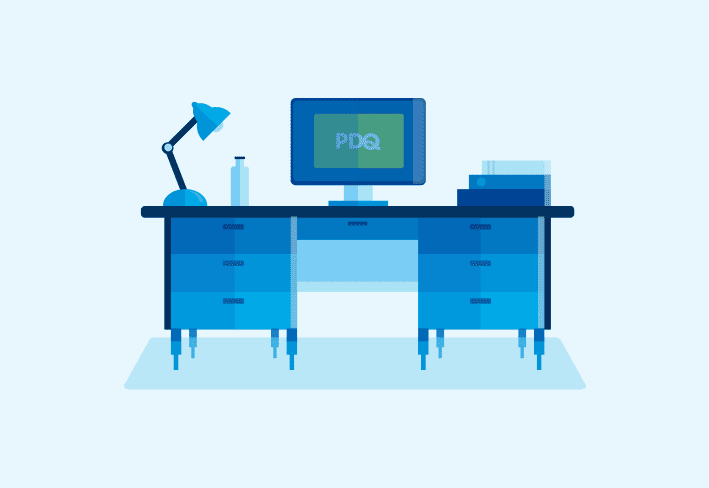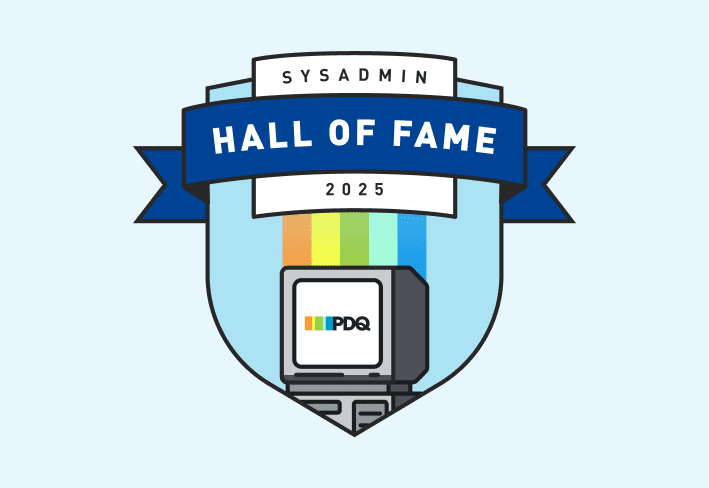Having a stellar IT resume is only half the battle when starting a career in IT. Technical skills, certifications, personality traits, and soft skills help you seal the deal.
We asked our team members who have served as IT hiring managers for their best advice on how to get a job in IT. Here are their pointers and best practices.
Technical skills
Of course, you need to know a thing or two about IT to land a job in the field. Knowing how to digest problems and brainstorm solutions benefits you in the sysadmin world.
“I look for a few main technical skills when interviewing candidates for an IT role.
Useful pattern matching and a methodical scientific approach to problem-solving (ingesting large amounts of seemingly disparate information and being able to formulate a hypothesis).
Understanding broad technical concepts and how they connect and impact smaller systems.
The ability to reframe problems (e.g., formulate workarounds).
Automation and improvement-oriented at every level (from the product to how help is provided to the customer). Everything is capable of being improved upon.”
“I don’t know”
As it turns out, saying “I don’t know” during a technical interview is a skill our hiring managers embrace. It shows that you’re honest — and human.
“At some point in a technical interview, they have to say, ‘I don't know.’”
“So much of IT isn't about already knowing; it's about learning and problem solving — getting back to the foundational point that having the right mentality is more important than knowledge or skill in general.
“If you can't say honestly that you don't know everything, then you're not just a bad liar to the interviewer, but you're also a bad liar to yourself, and that sh*t be hard to fix.”
“I figured out early on in my career to just tell the truth. ‘I don't know’ is a fine answer.”
And quite hilariously, one of our sysadmins at PDQ got hired in part because they said, “I don’t know”:
“I remember saying ‘I don’t know' to a question in my Solutions interview here and asking for the answer, and [someone on the interview panel] said, 'Oh, I don’t know either. I’m just asking questions.'”
If you don’t know an answer during a technical skills interview, you may find it helpful to pivot a bit after admitting you don’t know. Indeed recommends thinking aloud as you attempt to answer the question. That way, the hiring manager can get an idea of how you think — which is often a key goal for hiring managers during job interviews.
TL;DR: Answer technical skills questions to the best of your ability — and don’t be afraid to say, “I don’t know.” It’s better to be honest than to pretend to know something you don’t.
Certifications
There’s a lot of chatter in the IT industry on whether certifications are worth it. As it turns out, our hiring managers here at PDQ hold various opinions.
“To be honest, the more certs I see on a resume, the more suspicious I become. I've seen tons of people who load up on certs but couldn't be trusted to set the time on their stove.”
(Yikes.)
“Education and certs are meaningless.”
(Ouch.)
“If someone is flaunting certifications but doesn't have a lot of demonstrated experience solving problems in the real world and struggles with exercises (specifically open book because closed-book exercises kinda suck), that's not a great sign.
“It's a delicate balance too because certs can show motivation to demonstrate pursuit of knowledge and self-learning … but they should really be for foundation building and less 'must obtain cert for every task I perform.’”
Wondering which certifications will serve you best in your career as a sysadmin? Here's our list of the best IT certifications for sysadmins.
“If it's a cert I don't recognize, I would have some questions. If it's a cert I have (I have a lot), I would have hella questions and not just assume they know what the cert implies they know (best example is PenTest+). A+ would crack me up for a sysadmin job because what they test you on is not similar at all to what I see our sysadmins doing all day.”
And speaking of CompTIA A+…
“CompTIA A+, in my opinion, is a sign that someone either
Got it because the DoD required it of them or
Decided to get into IT because they didn't know what they want to do but heard IT pays well.”
TL;DR: Certifications are okay — as long as you have the industry experience to back up what the certification says you can do. And which certifications you have matters — they should be relevant to the role you’re applying to.
Personality traits
Our hiring managers cited several personality traits as green flags during IT job interviews. The most common traits that popped up include being friendly and empathetic — and being able to interface well with others.
“When hiring a sysadmin, you are hiring a leader of sorts. You aren't necessarily hiring them for their technical skills. I look for their ability to work within a team and their ability to shape and grow that team. I look for someone who can make good decisions based on experience rather than impulse. Patience, leadership, kindness, critical thinking, humility, and a willingness to function in a team.”
“I agree with the general sentiment that personality carries more weight than skill. And, it isn't just having a chill, customer-centric personality; it's being a good cultural fit. Each business has a different culture with a different set of operating norms and values. We've interviewed dozens of people who would no doubt do very well in a different business, but they would not do well at PDQ.”
“I think something a lot of people tend to forget is that nearly every sysadmin role is just as much or more of a customer service job as it is an engineering job. Even if you're doing IT for the company you work for and never speak to a ‘customer,’ your users are your customers, and you need to not only fix their sh*t but make them feel good about it too.”
TL;DR: Your personality and how you interact with others matters. Even if you don't anticipate being predominantly customer-facing, you should be a team player who can interface well with others. A positive attitude also goes a long way. As Southwest Airlines cofounder Herb Kelleher once said, “Hire for attitude. Train for skill.”
Soft skills
We saved soft skills for last because the responses we received took us on an emotional rollercoaster.
At first, folks agreed that soft skills take you further than technical skills.
“It's not about their technical proficiencies when I'm hiring; it's about soft skills. You can teach damn near anyone how to troubleshoot, but personality is way tougher to change, and all the most effective methods of doing so are in weird moral grey areas because everyone gets all upset when you suggest lobotomizing poor performers.”*
*Note that no lobotomies were performed during the creation of this blog.
“I can teach a wet noodle to code, but I can't teach a wet noodle to be chill.”
And then, a PDQ webcast happened — and this topic took center stage during the preshow.
Tara Sinquefield, a content engineer at PDQ, shared an interesting take: While soft skills are nice, they can't save the day as technical skills can.
“At the end of the day, when everything at your organization is broken, I don’t really care if you can talk to me. Can you fix it? Okay, you’re my guy!”
TL;DR: Largely, hiring managers appreciate certain soft skills that help sysadmins learn and adapt. However, you likely won’t be able to land an IT job based on soft skills alone. Ideally, an IT team has a good mix of sysadmins who contribute hard and soft skills that complement one another. That way, things get fixed — and end users don’t get left in the dark.
Looking for more career advice for sysadmins? Be sure to check out our blog to learn 13 things seasoned sysadmins wish they’d known before entering the IT field, and watch our webcast below on how to get (and keep) an IT job.
Loading...



